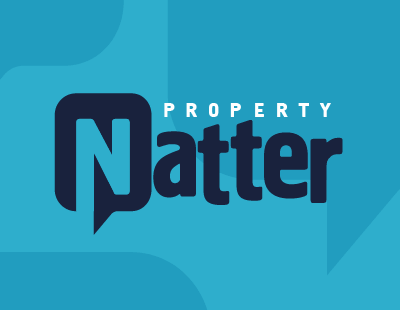Imagine a world where you, as an agent, could focus on what you do best. Building and managing relationships, showing properties, negotiating, and getting your clients the best possible outcome. A future state where you could use the same systems you use every day but be able to access the information you need, securely, quickly, easily. That future is on its way, thanks to Blockchain.
Blockchain has been the subject of many headlines and much debate over the past decade. Best known for its role in cryptocurrency, it is in fact a much wider technology than most people today realise. It is already quietly transforming major processes in a range of high-security and data-intensive industries such as finance, health, capital markets and international trade. And, just as the internet transformed how we all communicate, Blockchain is likely to transform almost every aspect of how we exchange value and physical assets from one individual to another.
Bringing simplicity to complexity
The property transaction process is a complex one. There are a lot of parties involved in the lifecycle including agents, brokers, conveyancers and banks—to name a few. Each party in the chain uses a host of different technologies and processes to get the job done.
As an estate agent, you use a system to record your client’s property deal. But, so does the conveyancer, the bank, and the broker. That's all the same deal, but you'd never know because they're all held in disparate systems. Today, if you want to know what your conveyancer is doing on your deal, you can’t look, you have to call.
The reason for those calls is surprisingly simple: it is just because data is not being synchronised across these systems. The result: fragmentation and duplication of data, and pain at every step of the transaction process.
Not only this, but some parts of the property transaction process are digitised, and some are not. This cripples efficiency and makes managing and accessing the data between these systems complicated because often you must take offline information, copy it to digital, have a third-party verify it to be true, and send it to someone else who may need to do the same thing.
The sheer number of moving parts across multiple parties in the chain creates lots of unnecessary duplication of work and many points of failure. And, who suffers most? The client, of course. Blockchain is changing all of this.
Putting trust in every property transaction
There are plenty of complicated resources out there detailing the very technical aspects of Blockchain, but the best way to understand it is to think about the value it delivers. At its heart, blockchain allows information sharing in a decentralised and secure way.
Its best-known use is for cryptocurrency. This form of blockchain – so-called “public blockchain” – enables users to hide their identities, making it useful for some, and concerning for others. The fluctuations in the value of currencies like Bitcoin may take place on a public blockchain, but they aren’t themselves due to the Blockchain, any more than the fluctuations of the value of the pound are due to the shape of a bank vault.
However, less well known to the public is that the technology can also be applied in a very different way. High security “private blockchains” permit institutions to verify identities, encrypt transactions, and provide the kind of high-speed, high-value connectivity that is demanded in uses like global banking. Over a hundred of the long-established banks of Italy now settle billions of Euros at the end of every day using this kind of private blockchain. It’s a far cry from the world of cryptocurrency.
When we look at its role in the property lifecycle, the same technology now enables disparate groups of people and systems to access the same information and process transactions at a scale and level of security only imagined before.
By connecting all parties to the same backbone, it enables all data in the property lifecycle to synchronise effortlessly. When one party updates information on their system, it automatically updates the information on the other systems that are permitted to do so. If one party sends a message or a document, it can be visible to others in the chain who are permitted to see it. All with absolute certainty of who sent what data and when. Fast, secure and incredibly reliable.
Crucially, blockchain is “decentralised”, which means the data is never housed on a central database. Instead, the blockchain links the databases you already use today. It’s not just a revolution in transmission, it’s a revolution in data ownership.
Further, the power of blockchain means you can not only move data, but also digital identities, progress updates, documents, even funds, with the same tremendous security. Suddenly, everyone can connect to everyone else, securely and in real-time.
Building the trust engine, block by block
Speed, certainty, security, reliability—the benefits and potential of Blockchain are endless. But where it delivers real transformation is enabling a future where every property transaction is a truly collaborative experience. Where all parties involved can work together to achieve the same goal. Where everyone has access to the same golden thread of truth.
We can all achieve so much more together than we ever could apart, but trust must be at the centre of everything. Blockchain is building that trust engine, block by block and brick by brick.
As you go about your day today, searching your email for a document or picking up the phone to get that update you are expecting, I hope you will consider the potential of blockchain technology. Think about being able to access everything you need to do the things you do best in one place and having everyone else be able to do the same.
For all the noise about cryptocurrency, ironically the way blockchain may really change your life could be sitting quietly right now on your desktop. Remember, you read about it here first.
*Dan Salmons is the Chief Executive Officer of Coadjute







.png)




.png)


.jpg)
.jpg)





%20-%20IMAGE%20Client%20Accounting%20%E2%80%93%20what%20are%20your%20options.jpg)


.png)
.png)
.png)
%20(002).png)






%20(002).jpg)



.png)



Join the conversation
Jump to latest comment and add your reply
With a bit of luck, it'll cause a few conveyancers to pull their fingers from where the sun doesn't shine and actually do something in a timescale quicker than Russell Grant running a marathon with Jo Brand on his back.
Thanks for this article. I now finally understand what blockchain is. Could blockchain be utilised in lettings?
Hi Sam, Good question and the answer is yes, it could certainly be utilised in lettings. I'll drop you a message on Linked In.
Please login to comment